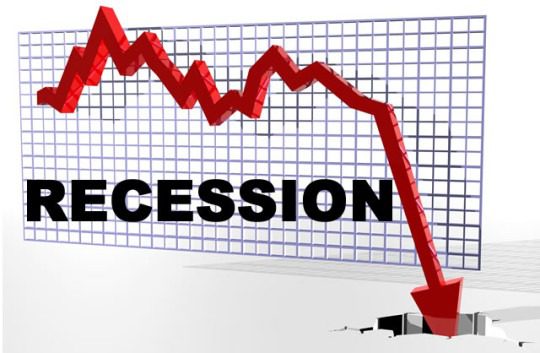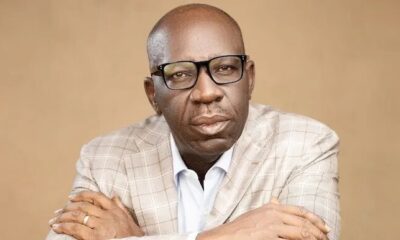National Issues
Recession: Between Popular Perception And Reality (1) -By Bashir Ibrahim Hassan


The story of how Nigerians are coping with the recession is typical of what one of the nation’s dailies recently reported about Mr Tunde Akinpelu, a banker with one of the first generation banks in Ota. According to the report, Mr. Akinpelu said he had stopped eating in eateries where he had been spending a lot of money. Akinpelu recalled that he used to spend at least N2, 500 per meal in eateries and usually more when out with friends. “Now, I manage to eat in some clean roadside restaurants where I spend between N400 and 500 for a nice meal,’’ he said. “I used to spend about N30,000 monthly on dry cleaning, but I now spend about N7,000 monthly.’’ He added that he has also resorted to washing his shirts and trousers by himself.
If there is anything that the recession we are facing in Nigeria tells us, it is this: we have for decades been living above our real means. This is very true of us as individuals and as a nation. Our growth and development have all along been built on sands. An economy based on export of finite natural resources is an economy with weak fundamentals. We have all been dwelling on the exportation of a single commodities export — the crude oil. Crude oil, almost solely, depends on the consumption patterns of our client nations. Whenever they change their pattern of consumption, we are impacted. Add this to price fluctuations. Any downward drive of the price will create a hole in our forex kitty.
This is exactly what happened that led to the recession we are facing today. Our total reliance on export of oil as a means of forex earnings collapsed on our face when the price of the commodity nose-dived to less than $10 per barrel. Today, we cannot adequately finance our import needs or even pay school fees for our student studying abroad or get the foreign medical services we need. The scarcity of the forex naturally led to high cost of production. Experts believe, Nigeria is experiencing stagflation and cost-push inflation which have been caused by increase in cost of production due to devaluation of the Naira occasioned by drop in price of crude oil. As of October 2016 the inflation stood at 18.3%.
The situation we found ourselves today is not a sudden occurrence. It is partly our handiwork and partly that of neo-colonial powers that imposed on us a crooked model of development that is commodity export-based. If you choose to go far back then it started in the mid-seventies during the oil boom years. At that time, we failed to use the money we were making to lay a solid foundation for our future. If you choose not to go as far back, then you could say the writing on the wall about this current recession became visible since early 2013. The squandering of the excess crude oil account, chiefly by state governors insisting that it must be shared, is a significant watershed in the current crisis we are facing.
In effect, the state governors were intent on squandering their tomorrow even before it arrived. Today many state governors cannot pay salaries. It is quite interesting that it is the Federal Government that the state governors once threatened with court action over the excess crude oil that is bailing them out now.
What happened with all the billions the governors of the last Republic collected? It all evaporated because they left their states mired in internal debts. The only explanation is that the monies were flagrantly mismanaged. Enter corruption, one of the twin issues the Buhari administration is hell bent on fighting. The other twin is, of course, the state of the economy we have been discussing.
The war on corruption being waged by the Buhari administration is a very difficult one. This is for the simple that vast majority of Nigerians are beneficiaries of the corrupt practices that having taken over the ideal transparent ways of conducting business and governance. We are so much immersed in corruption that it has lost its repugnance as a way of life. This is why when leakages were plugged by the Federal Government through, for example, the Treasury Single Account (TSA) system, it was not only the direct beneficiaries of the leakages cried but even the indirect ones down the ladder on the streets.
The Buhari administration deserves credit for choosing to confront this twin malaise debilitating the country and for the success so far recorded. It is instructive that so far the Federal Government has not failed to pay its salaries; it has been able to bail out state governments and propped the economy despite the dwindling forex earnings occasioned by low price of crude and low production caused by the ferocious attacks on oil installations by the so-called Niger Delta Avengers, which caused production to drop from 2.2 mbpd to 1.1 mbpd.
Since the Finance Minister, Mrs Kemi Adeosun, was pushed to publicly admit that we are in recession last July, the Federal Government has been listening and responding appropriately to many voices of Nigerians on what needs to be done to extricate us out of this quagmire. It is instructive to note the words she chose. She said Nigeria is technically in recession. Underline the word technical. The ability of the Federal Government to still stand tall and pay its bills is casting shadows on the entire notion of recession in Nigeria. Why, exactly, as this admission made? Did it have to do with the prospects of securing a loan from the IMF? There is a problem here between popular perception and reality on ground and we need to be careful.
An economic recession is typically defined as a decline in gross domestic product (GDP) for two or more consecutive quarters. GDP is the market value of all goods and services produced within a country in a given period of time. The truth is GDP is an impossibly complex thing to accurately measure. But for lack of better tools, all countries use it to forecast their economy’s viability. Basing the definition of recession on contraction in GDP pushed some experts to believe we are not sincere when we said we are in recession for the simple and revealing fact that oil, which is our sole source of foreign exchange, has declined. After all it contributes only 15% of our GDP. The major contributors to our GDP are agriculture, services and trade.
Whatever is the case—recession or no recession—inflation is one reality that is undeniable. And the Federal Government is working to address the issue. But even here, one needs not to rule out sabotage by the regimes’ detractors who have hoarded goods to create artificial scarcity. This can been seen in the way last bumper harvest quickly evaporated from the local markets—mopped up by moneybags.
No doubt our economy is diversified by GDP contributions, but we over dependent on hydrocarbons for foreign earnings and government revenue. So any external shocks or even internal insurgency around our production facilities can adversely impact our source of foreign earnings (77%) and government revenue (74%). Of course we have failed to deal with bloated government recurrent expenditure, where most of the corruption is taking place.
For a way out Nigerian experts have variously suggested: massive spending on infrastructure to kick-start the economy, a flexible exchange rate policy; a devalued Naira; policies to attract foreign investors; a development bank to rejuvenate lending, especially to SMEs—the sector capable of effectively mopping of excessive labor and a re-orientation of Nigerians’ attitude.
Contrary to the image of rigidity painted, the Buhari regime has been listening and responding positively to Nigerian experts. The recent announcement to invest N600 billion on infrastructure is a case in point. A flexible exchange rate is finally in place after some foot-dragging to protect the Naira




















